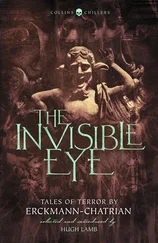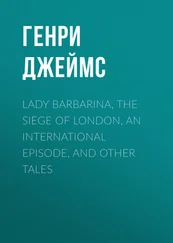“They’re very lovely,” said Shoshanah.
“Does that mean that you approve of them?”
“If you think well of them,” replied Shoshanah, “so do I.”
“I don’t know how to take that.”
“I mean just what I said. But you have other friends besides, haven’t you? Tell me about them.”
Jacob began to tell her. When he had got round to describing Tamara, Shoshanah looked at him rather closely.
The two old men were coming back, the Baron laughing raucously. This time, it would seem, the Consul had capped his story with a spicier one.
“So you’re here, you two?” said the Consul.
“Yes,” answered Shoshanah, and went on to praise Jacob for his kindness in calling a carriage and bringing her back to the hotel.
“Happy is he who finds a good escort,” said the Baron, and he cast a benevolent glance on Jacob.
“But aren’t you cold, Shoshanah?” asked the Consul.
“No, I’m neither too cold nor too warm. I’m quite happy, Papa.”
The Consul looked at his daughter for a moment and went off with the Baron. At Shoshanah’s suggestion, she and Jacob sat down again together.
“Once,” said Shoshanah, “I dreamed that I was dead. I wasn’t happy, I wasn’t sad, but my body felt such rest as no one knows in the land of the living. And this was the best of it, that I wanted nothing, I asked for nothing, it just felt as if I were disappearing into blue distances that would never end. Next morning I opened a book and read in it that nobody dreams of himself as dead. If that’s so, perhaps it was not a dream but wide-awake reality. But then, how can I be alive after my death? It’s a puzzle to me, Jacob. Do you believe in the resurrection of the dead?”
“No, certainly not,” Jacob said.
“Don’t say ‘certainly.’ These certainties of yours bring me to tears.” As she spoke, she closed her eyes.
At that moment, Shoshanah seemed to hover over those blue distances she had spoken of. Then suddenly she answered Jacob’s gaze. She took out her handkerchief, wiped her eyes, opened them and looked at him with absolute love. After a while, she said, “I am going to close my eyes and you, Jacob, are to kiss me on the eyelids.”
Jacob’s own eyes filled with tears. With the tears still there, he placed his lips on her wet lashes.
XXIII
Everything good happens when your attention is turned the other way. So it was with Rechnitz. An elderly scholar in New York, with whom Rechnitz had exchanged specimens of seaweed, had suggested the creation of an academic chair for him; the suggestion had been taken up and now Rechnitz received a written offer. Even though he had already won himself a high reputation, Rechnitz had not expected anything like this, for he was still a young man and aware that he had many superiors in the field.
He was lying on his couch that morning mid-way between sleep and waking. His thoughts went off in various directions without his knowing where they were heading. There are times when a man’s limbs are still and his mind is at rest, and there are times when his mind goes wandering and carries back many thoughts. There are times when the limbs are still but find no rest or the mind goes wandering but carries back no thought and no idea. Yet again, both states may exist together: the mind goes wandering and the limbs are still, and a man finds neither rest in his limbs nor thought in his mind. Rechnitz wanted to get up from his couch but knew it would be useless. And so he had yielded to this kind of lethargy that brings no benefit, when he heard someone knocking on his door. He jumped up, opened the door, and there was the postman with a letter. Rechnitz received it with a groan, as if he had been interrupted in some important undertaking. The postman slung his bag over his shoulder and went away; Rechnitz opened his letter and read it. Certainly this was good news, and would have been so even if he had been expecting the appointment. All the more so when it came as a surprise.
Rechnitz always offered thanks for any benefits that came his way, sometimes to the good gods, sometimes to the Only One. Now he was silent and said no prayer, but whatever it was that had dulled his mind before now passed away completely.
He dressed and went to call on someone whose English was better than his. Actually there was no need, since he already knew what the letter was about. Nor did this man tell him anything new. But his eyes widened with surprise and he reached out his hand to Rechnitz, saying, “Congratulations, Professor!”
Perhaps Rechnitz was more moved by this response than he had been by the occasion for it. Possibly, too, the man he consulted was more excited about the news than Rechnitz himself. Before the day was out all Jaffa knew that a young fellow who taught at the school had gained an unheard of distinction. For in those days honor paid to learning still counted among ordinary people; all the more so when the honor carried with it a good salary. How many scholars were there who didn’t even get as far as a university post, and here was an ordinary young teacher promoted to be a full professor!
In Rechnitz’s time, a number of scholars had already settled in the Land of Israel. Of these, some were engaged in research in Palestinology, others in biblical studies. They had this in common: they made their studies an adjunct to interests outside the field of pure scientific learning, such as national, religious or social causes. Some of them were internationally famous and their opinions were generally accepted until the intellectual climate changed and new scholars came to the fore. As for Rechnitz, he subordinated his work to no other consideration. He took trouble and pains solely in the cause of pure knowledge. All seasons were the same to him. A storm outside or blazing sunshine never kept him back. Besides collecting marine plants from the sea off Jaffa, he collected them, too, off the coasts of Haifa, off Acre, Hadera and Caesarea, since the plants in the sea around Jaffa differ from those in other regions. And here we must remember that Rechnitz had found no professional colleague in the country and did his work in solitude. This isolation, which may lead to slackness, can prove a blessing to the true scholar, for if he makes some new discovery he clarifies its meaning all to himself and does not waste his time in superfluous discussions. With the vigor of youth, with keen intellect and a discriminating eye, Rechnitz studied, investigated and assembled minute details as well as general principles, constructing from these a complete system. This ability to see and observe was matched by his ability to set out his observations in writing. His “Remarks on the Nature of Cyrenean Seaweeds,” and even more so, those on Cerulean Seaweeds, made his reputation. And at the conference of zoologists and botanists, most of the lecturers referred to him; even those who disagreed with his views accorded him high praise.
Jaffa was getting more and more excited over the affair. People who had nothing to do with universities were talking about this young Ph.D. who had been appointed a professor. Everyone who came across Rechnitz, whether an acquaintance of his or not, would stop to congratulate him. His actual acquaintances invited him to take a drink in honor of the occasion, and wherever he went he found a holiday spread awaiting him. Here too we should remark that whatever people did was done in honor of science, for the parents of daughters knew well that now Rechnitz was a professor the Consul would never let go of him.
What is more, the daughters themselves knew that from the day of Shoshanah Ehrlich’s arrival in Jaffa, Rechnitz had made himself scarce, especially now that he was getting ready to leave. Nevertheless, they retained their affection for him. Leah sent him more flowers of the kind she had given him for the Ehrlich girl on that first day. Tamara baked a cake for him in the shape of a boat and set on it a little American flag made of sugar. Even Rachel Heilperin put herself out so far as to write him a letter of congratulation; and this was no small matter, for although she could speak with much fluency, when she sat down to write she got stuck on the very first phrase. Should one write “My dear sir,” or “Dear Dr. Rechnitz,” or “My very dear friend Mr. Rechnitz”?
Читать дальше












